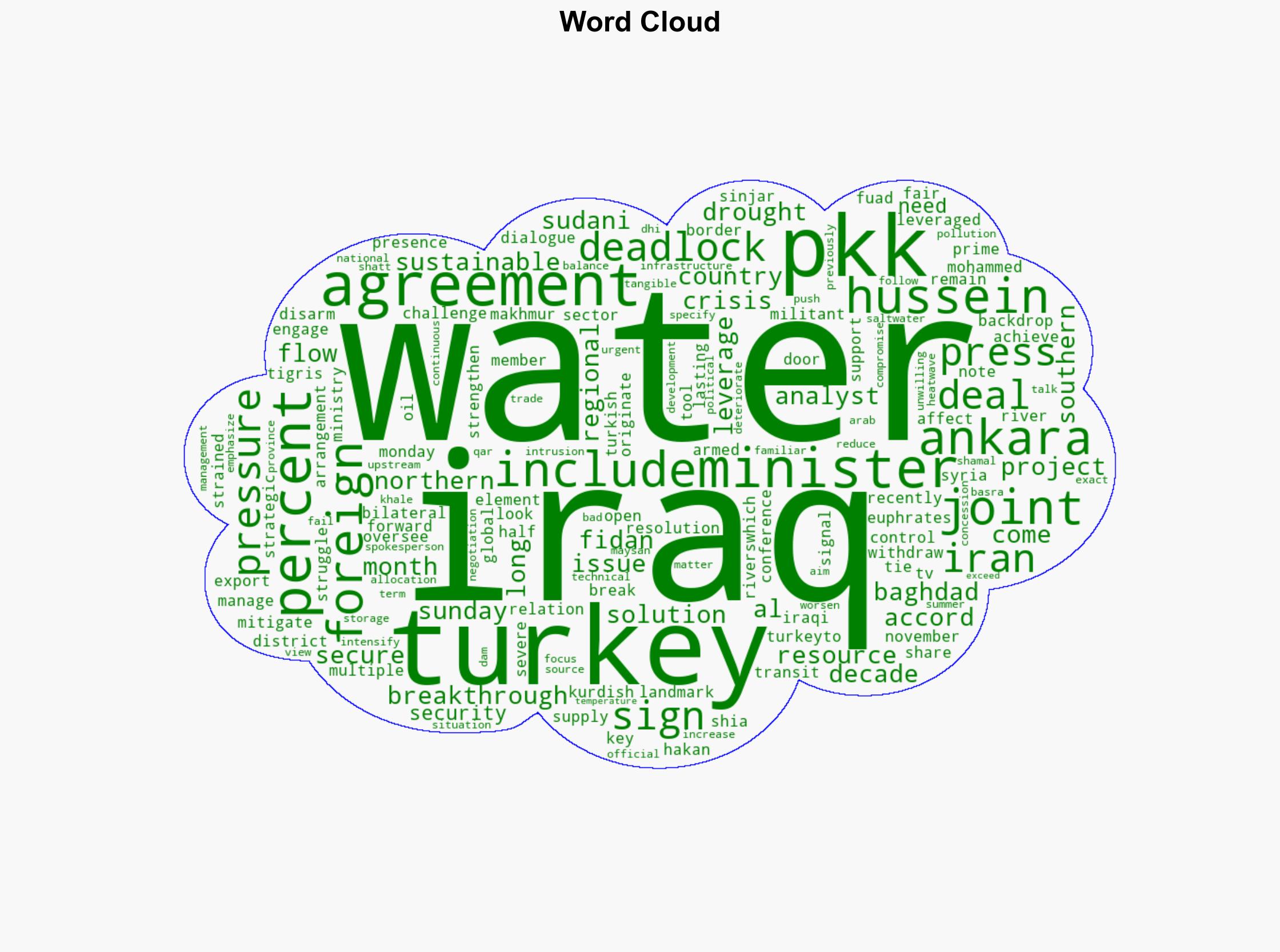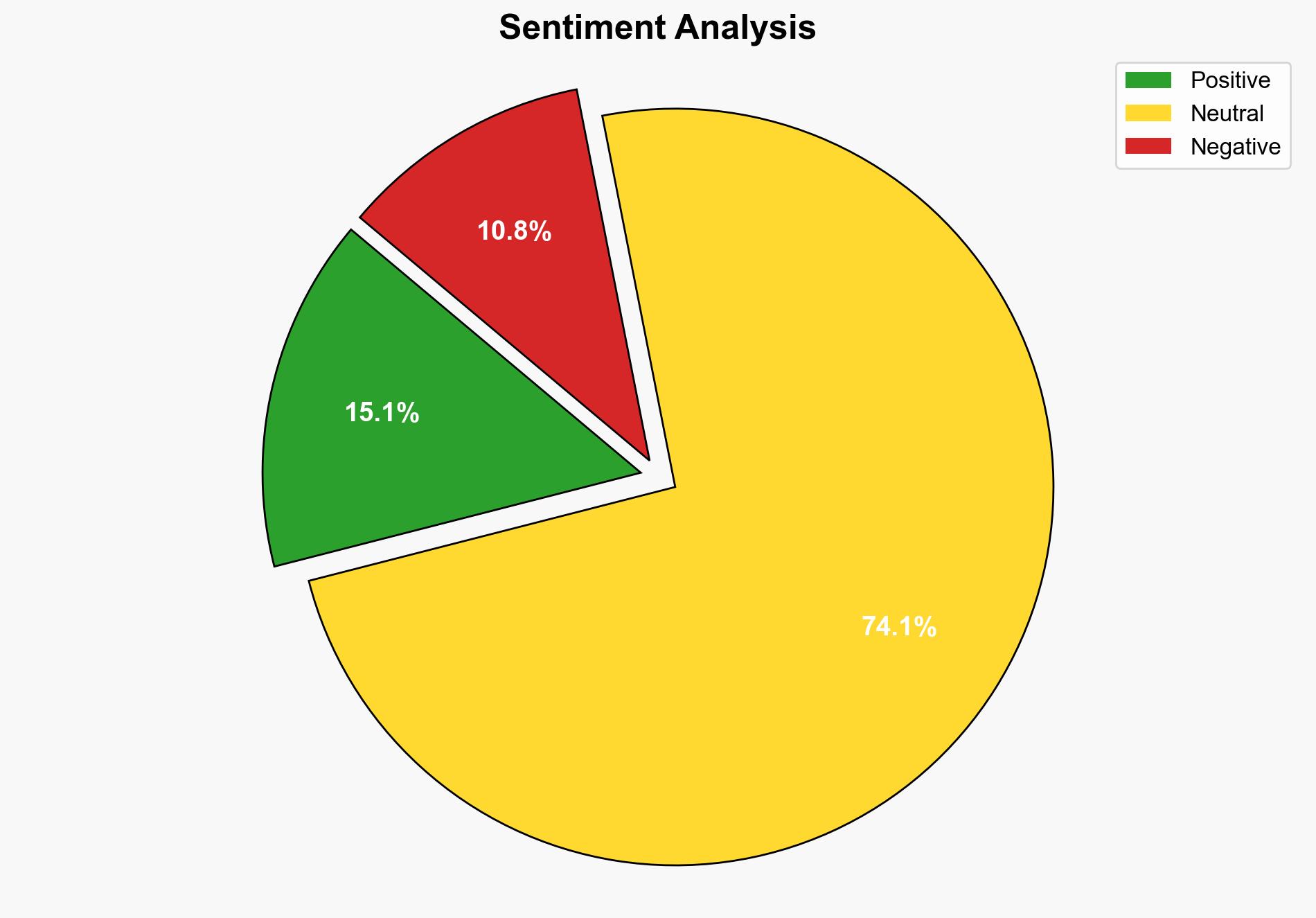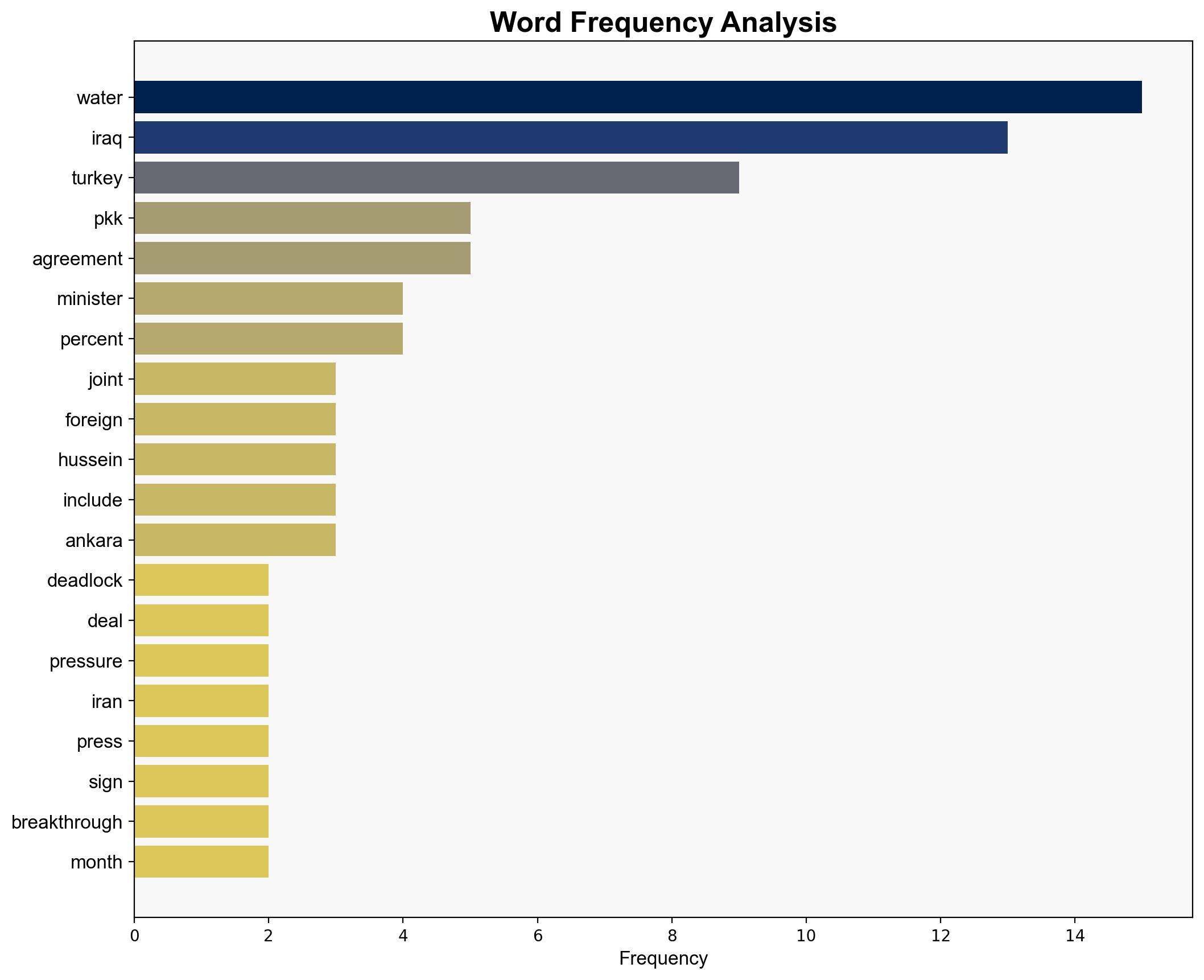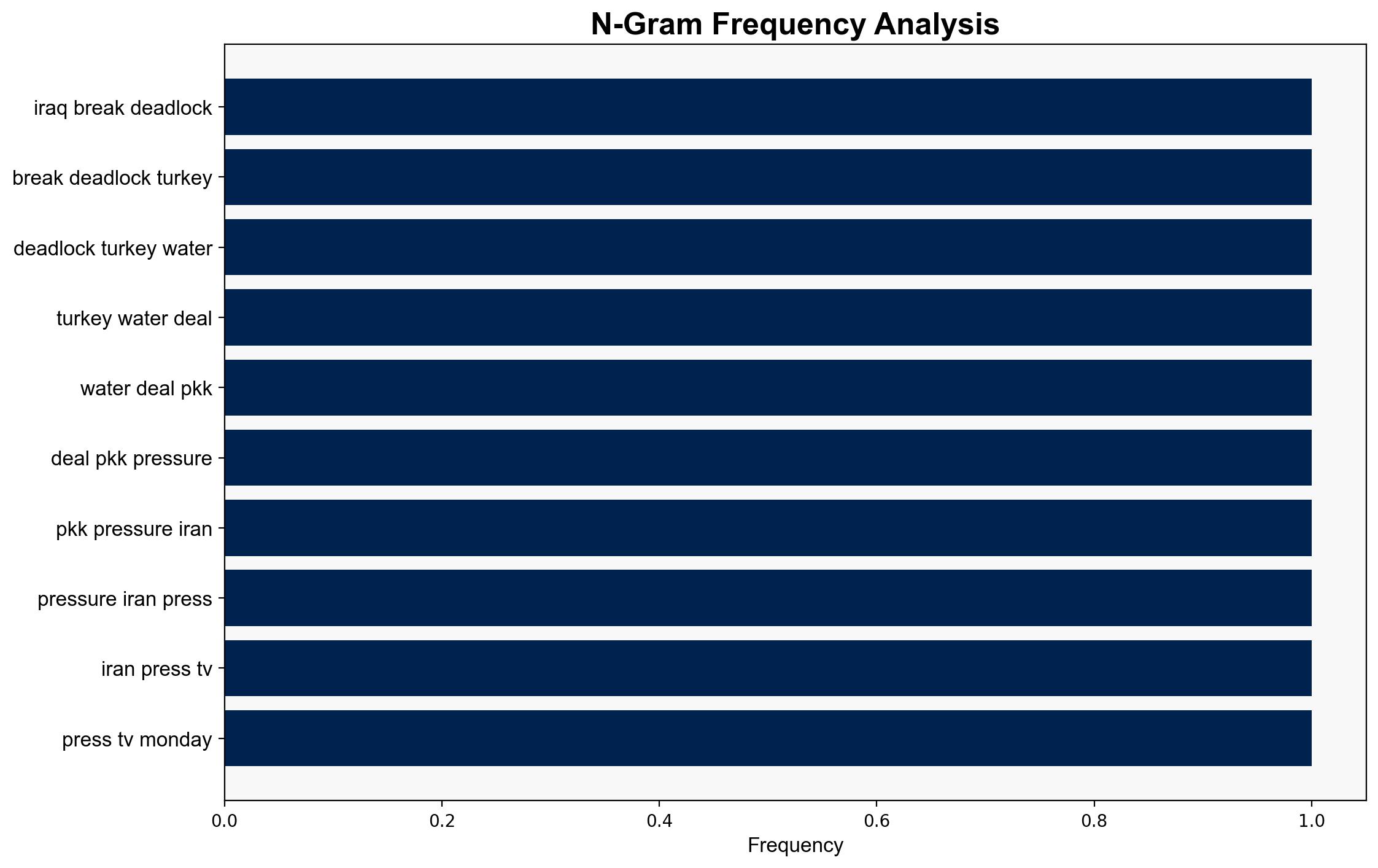Iraq breaks deadlock with Turkey in water deal amid PKK pressure – Globalsecurity.org
Published on: 2025-11-04
Intelligence Report: Iraq breaks deadlock with Turkey in water deal amid PKK pressure – Globalsecurity.org
1. BLUF (Bottom Line Up Front)
The most supported hypothesis is that the water agreement between Iraq and Turkey is primarily a strategic move by Turkey to leverage its control over water resources to address regional security concerns, particularly the PKK presence in northern Iraq. Confidence level is moderate due to the complexity of regional dynamics and the potential for unanticipated shifts in political alliances. Recommended action includes monitoring the implementation of the agreement and its impact on regional stability, as well as preparing contingency plans for potential disruptions in water flow.
2. Competing Hypotheses
1. **Strategic Leverage Hypothesis**: Turkey is using the water agreement as a strategic tool to exert influence over Iraq and address its security concerns regarding the PKK. This hypothesis suggests that Turkey’s primary motivation is to gain concessions from Iraq on security issues, using water as leverage.
2. **Genuine Cooperation Hypothesis**: The agreement represents a genuine effort by both countries to address the severe water crisis and improve bilateral relations. This interpretation posits that both nations are prioritizing sustainable water management and regional stability over political maneuvering.
3. Key Assumptions and Red Flags
– **Assumptions**: The Strategic Leverage Hypothesis assumes Turkey’s primary interest is security, while the Genuine Cooperation Hypothesis assumes a mutual prioritization of water management.
– **Red Flags**: The lack of specific water allocation details in the agreement raises questions about its enforceability and long-term viability. Additionally, the historical use of water as a bargaining chip by Turkey suggests potential for future manipulation.
– **Blind Spots**: The potential influence of external actors, such as Iran and Syria, on the water negotiations is not addressed, which could impact the agreement’s success.
4. Implications and Strategic Risks
– **Patterns**: The agreement may set a precedent for future resource-based negotiations in the region, potentially influencing other geopolitical disputes.
– **Cascading Threats**: Failure to implement the agreement effectively could exacerbate Iraq’s water crisis, leading to increased domestic instability and potential conflict over resources.
– **Potential Escalation**: If Turkey perceives Iraq as non-compliant or if PKK activities increase, Turkey may resort to further leveraging water resources, escalating tensions.
5. Recommendations and Outlook
- Monitor the implementation of the water agreement closely to assess compliance and impact on regional stability.
- Engage in diplomatic efforts to encourage transparency and cooperation between Iraq and Turkey, potentially involving neutral third-party mediation.
- Scenario Projections:
- Best Case: Successful implementation leads to improved bilateral relations and regional stability.
- Worst Case: Breakdown of the agreement exacerbates water scarcity and regional tensions.
- Most Likely: Partial implementation with ongoing negotiations and periodic tensions over water and security issues.
6. Key Individuals and Entities
– Mohammed Shia al-Sudani
– Fuad Hussein
– Hakan Fidan
– PKK (Kurdistan Workers’ Party)
7. Thematic Tags
national security threats, regional focus, resource management, geopolitical strategy





